Business
Nigeria’s foreign reserves rose to $39bn in October – Cardoso
Published
6 months agoon
By
Ekwutos Blog
Olayemi Cardoso, the governor of the Central Bank of Nigeria (CBN), announced a notable increase in the country’s foreign reserves, which rose by 12.74% to $39.12 billion as of October 11, 2024.
Ekwutosblog reports that Cardoso shared this development during his appearance before the House of Representatives Committee on Banking Regulation on Tuesday, October 15.
Cardoso revealed that Nigeria’s foreign reserves stood at $34.70 billion at the end of June 2024, reflecting significant growth in a few months. This comes after reserves fell to $32.29 billion on April 15, 2024, the lowest level in over six years.
“The reserves have grown significantly, with remittance flows now contributing 9.4% to total external reserves,” Cardoso explained. He attributed the rise in reserves to foreign capital inflows, crude oil-related taxes, and other third-party receipts.
“In the second quarter of 2024, we maintained a current account surplus and observed substantial improvements in our trade balance,” he added.
Cardoso emphasized the resilience of Nigeria’s external reserves, noting they can finance over 12 months of imports for goods and services or 15 months for goods alone—far exceeding the international benchmark of 30 months, ensuring a robust buffer against external economic shocks.
In discussing reforms in the foreign exchange market, the CBN governor pointed to the unification of exchange rate windows under the “willing buyer, willing seller” model. This strategy was designed to enhance foreign exchange liquidity and improve market transparency and stability.
“This reform has improved transparency, reduced market distortions, and streamlined foreign exchange allocation. The bank resumed FX sales at the NAFEX and Bureau De Change (BDC) segments, driven by increased supply from foreign portfolio investors,” Cardoso said.
The narrowing of exchange rate disparities between the NAFEX and BDC segments has also led to a convergence of rates, boosting market confidence and enabling the CBN to clear existing FX backlogs.
Cardoso further stated, “The settlement of all legitimate backlogs of outstanding FX obligations by the bank has significantly improved Nigeria’s credibility and ratings across the global financial market, helping to boost investor confidence and enhance liquidity in the foreign exchange market.”
“With improved investor confidence, foreign investments have increased, as evidenced by a significant rise in capital importation by 65.56% to $6.49 billion between January and July 2024, compared to $3.92 billion in the corresponding period of 2023.”
Cardoso concluded by noting the broader impacts of these actions: “Collectively, these actions have contributed significantly to the stability of the financial system.”
You may like


UPDATED: Oborevwori, Okowa, others dump PDP for APC
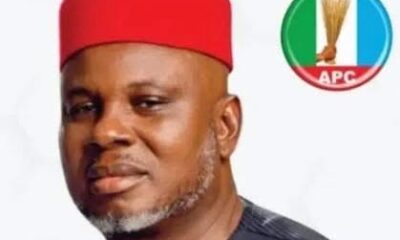

Fact-checker has falsified Ukachukwu’s claim to be the highest employer of labour at a point in Anambra.


Peter Obi Pays Tribute: POPE FRANCIS EULOGY: Leaders Urged to Emulate Pontiff’s Values
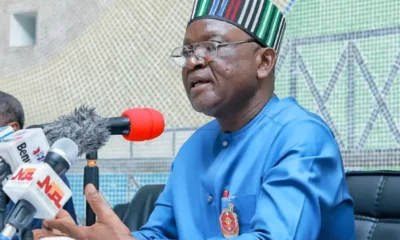

Benue Insecurity: Ortom cancels his 64th birthday celebration


2027: Don’t fall for Tinubu’s tricks, Timi Frank warns Northern, Southern leaders
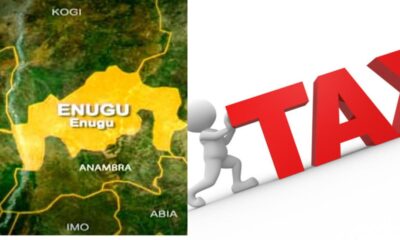

Taxing The Dead: Enugu State Government Faces Backlash For Imposing Mortuary Tax On Corpses
Business
Naira depreciates against dollar across official, black markets after Easter holidays
Published
8 hours agoon
April 23, 2025By
Ekwutos Blog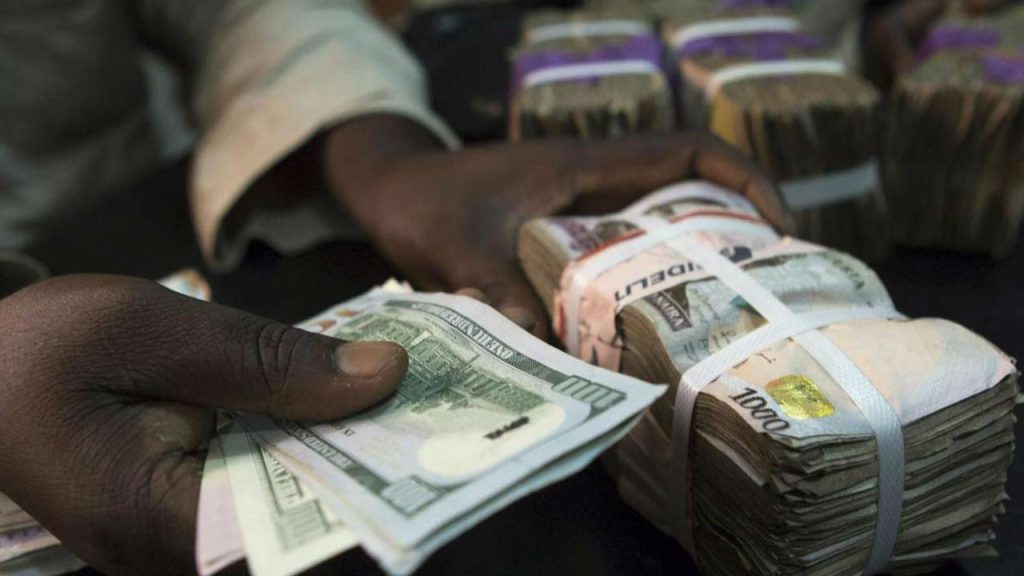
Nigeria’s currency, the naira, depreciated against the dollar at the official and parallel foreign exchange markets upon the resumption of work after Easter holidays.
The Central Bank of Nigeria’s data showed that it weakened to N1,602.63 per dollar on Tuesday from N1,599.93 exchanged on Thursday last week.
This means that it declined by N2.7 against the dollar on a day-to-day basis.
Similarly, the naira fell to N1620 per dollaron Tuesday from N1610 at the weekend.
The N1,620 dollar exchange rate at the black market is the same rate recorded on Thursday before the Easter holidays.
The development comes following the sustained slump in the dollar amid threats to US Federal Reserve independence and the tariff war.
Business
US: Tariffs on China will come down substantially – Trump announces
Published
8 hours agoon
April 23, 2025By
Ekwutos Blog
President Donald Trump of the United States has said that high tariffs on goods from China will come down substantially.
He said the tariffs would crash but won’t go down to 0%.
The President stated this during a White House news conference on Tuesday.
Trump stated this in response to earlier comments same day by treasury secretary, Scott Bessent.
Bessent had made it clear that the high tariffs were unsustainable.
Recall that the US had placed import taxes of 145% on China and in response the Asian giants retaliated with 125% tariffs on US goods.
Trump had announced what he described as a reciprocal tariffs on nations across the globe, causing the stock market to stumble and interest rates to increase on US debt.
“We’re doing fine with China,” Trump said.
Despite his high tariffs, Trump said he would be “very nice” to China and not play hardball with Chinese President Xi Jinping.
He added, “We’re going to live together very happily and ideally work together.”
Trump said that the final tariff rate with China would come down “substantially” from the current 145%, saying “It won’t be that high, not going to be that high.”
Business
Nigeria’s electricity generation records steady drop – Report
Published
1 day agoon
April 22, 2025By
Ekwutos Blog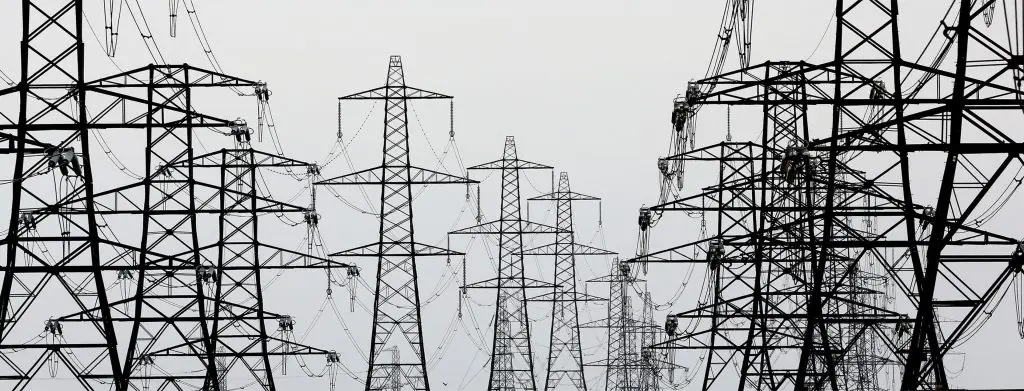
Nigeria’s electricity generation peak has recorded a steady drop to 4,742.20 megawatts in the past three days.
This is according to the National Grid performance report from Thursday, 17 to 19 April 2025.
The report showed that electricity generation dropped by 531 megawatts in the last three days.
Accordingly, the system performance data indicated that the electricity generation peak stood at 5,273.80 megawatts on Thursday but dropped to 5,131.20 megawatts and 4,742.80 megawatts on Friday and Saturday.
The development comes days after the Minister of Power, Adebayo Adelabu, announced that Nigeria hit its highest energy peak of 5,801.63 MW.
On Thursday, Adelabu reiterated that the government is doing everything to avert a collapse of the country’s power sector and plans to partly offset the N4 trillion owed to the electricity generation companies.

UPDATED: Oborevwori, Okowa, others dump PDP for APC

Fact-checker has falsified Ukachukwu’s claim to be the highest employer of labour at a point in Anambra.

Peter Obi Pays Tribute: POPE FRANCIS EULOGY: Leaders Urged to Emulate Pontiff’s Values
Trending

 Trending6 months ago
Trending6 months agoNYA demands release of ‘abducted’ Imo chairman, preaches good governance
- Business6 months ago
US court acquits Air Peace boss, slams Mayfield $4000 fine

 Politics6 months ago
Politics6 months agoMexico’s new president causes concern just weeks before the US elections
- Entertainment6 months ago
Bobrisky transferred from Immigration to FCID, spends night behind bars
- Entertainment6 months ago
Bobrisky falls ill in police custody, rushed to hospital

 Politics6 months ago
Politics6 months agoRussia bans imports of agro-products from Kazakhstan after refusal to join BRICS

 Politics6 months ago
Politics6 months agoPutin invites 20 world leaders
- Politics1 year ago
Nigerian Senate passes Bill seeking the establishment of the South East Development Commission.

